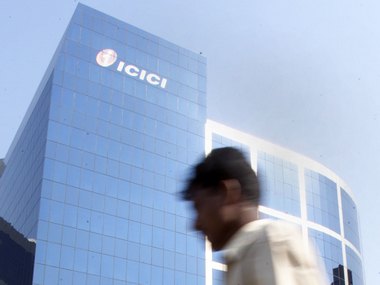For a while, it was only the public sector banks (PSBs) that were seen as the bad boys of the Indian banking sector. Back-to-back loan scams, high profile corporate loan defaults, an inefficient way of functioning resulting in non-performing assets (NPAs), lazy banking and the infamous begging bowl syndrome (the ritual of queuing up before the North Block for survival-capital at a particular time every year) — all show s_arkari_ banks in a bad light. But, the ICICI Bank-Videocon case and the allegations against the family of ICICI Bank managing director and CEO Chanda Kochhar have all given room for critics to say that private banks aren’t above suspicion, despite claiming global standards in corporate governance and lending caution. The episode has exposed the corporate governance standards of private banks. The ICICI Bank-Videocon case is all about allegations of a quid-pro-quo deal between the Kochhars and the Videocon group. It revolves around a loan given by ICICI to the Videocon group as part of a State Bank of India (SBI)-led consortium in 2012 and the change of ownership in a firm called NuPower Renewables Pvt Ltd, which was floated as an equal JV between Chanda Kochhhar’s husband Deepak Kochhar and Videocon’s Venugopal Dhoot. These allegations are being probed by central agencies, according to media reports. Further, some of the directors on the ICICI Board are planning to meet this week to examine developments and decide on the future course for Chanda Kochhar , according to a
report in The Economic Times. [caption id=“attachment_4411321” align=“alignleft” width=“380”] ICICI Bank. Reuters image.[/caption] As mentioned above, the ICICI Bank-Videocon controversy exposes the vulnerabilities of private sector banks. In email communication and telephone calls to Firstpost, both ICICI Bank and the Videocon Group categorically denied all allegations, first raised by activist-shareholder Arvind Gupta in his letter to top authorities in March, 2016. But even at this stage, key questions remain to which the bank hasn’t provided clear answers. These are: Firstly, was ICICI Bank boss Chanda Kochhar aware about her husband Deepak Kochhar’s joint venture with Dhoot when the company’s loan proposal came to the bank? Two, was the 12-member ICICI Bank credit committee, which decided in favour of the Videocon loan, and the lender’s board aware about the Kochhar-Dhoot connection? Three, If yes, why didn’t Kochhar recuse herself from a credit committee that decided on a loan to the Videocon Group in 2012? Four, in the context of allegations with respect to
Avista Advisory Group, ICICI Bank said the Companies Act excludes one’s brother-in-Law from the definition of a ‘relative’. However, in the interest of high corporate governance standards, shouldn’t the managing director tread with caution and make proper disclosures about her family member’s involvement in a business decision? Five, one of the five companies that are part of the obligators to Videocon—Evan Fraser—was much smaller in size, with a turnover of just about Rs 75 crore, according to RoC documents. When creating a charge against this company for Rs 650 crore, didn’t the bank take into account the size of the firm and its repayment capacity? Videocon loans turned NPAs later. Six, why, in the first place, did Videocon bring in a company like Evan Fraser, registered as a realty and trading business, to play the role of a guarantor in the Videocon loan? Seven, the ICICI Bank loan to the Videocon Group was classified as a NPA in late 2017. Did the bank approach the 12 co-obligor firms listed by the Videocon group for recovery? After all, these 12 companies were presented as co-obligors for this very purpose. Eight, what was the exact stated end-use of Videocon loans to different group companies and did ICICI Bank ensure that the Videocon group restricted the end-use of the loan amount to the stated purpose? Nine, what are the reasons for the ICICI Bank Board not conducting a detailed scrutiny of the Videocon loan, or openly welcoming an independent probe by government agencies even at this stage? Ten, given that there is a shadow of doubt on the Kochhars in the Videocon/Avista cases and investigators have already begun looking at these allegations, why isn’t the bank’s board asking Kochhar to step down from her responsibilities, at least temporarily, in the larger interest of the organisation?
Did ICICI approach the 12 co-obligor firms listed by the Videocon group to recover dues? The 12 firms were presented as co-obligors for this very purpose.
Advertisement
End of Article


)

)
)
)
)
)
)
)
)



